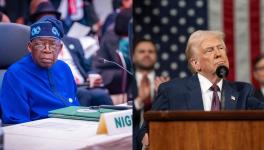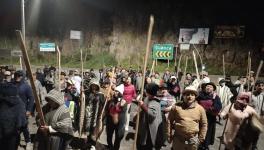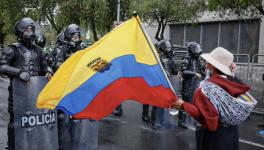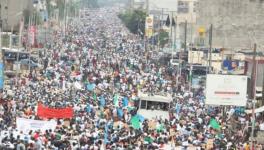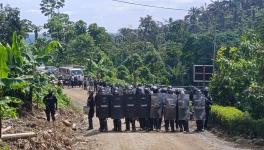Ecuador: President Noboa Sacks 5,000 Public Employees
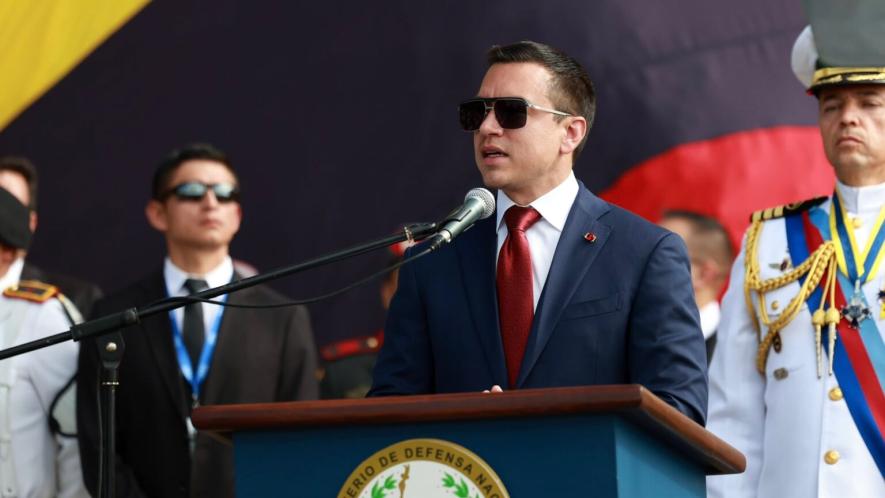
Ecuadorian President Daniel Noboa. Photo: X
Ecuador’s government announced on July 24 that 5,000 public employees will be laid off and that several public offices will be combined. Political parties and grassroots movements have publicly denounced the decision and have announced demonstrations to oppose it.
The so-called “neoliberal offensive” appears to be off to a radical start in the second administration of Ecuadorian President Daniel Noboa.
During the recent election campaign, Noboa promised a Constituent Assembly that would draft a new constitution. However, having secured a majority in the assembly through alliances – some more controversial than others – the administration has decided to advance its neoliberal project with “urgent economic laws”, a classification in Ecuador that seeks to speed up the approval of laws sent from the presidency.
Several laws have already been passed that increase the state’s repressive power while paving the way for a reduction in taxes on the country’s wealthiest economic groups. Among the latest laws passed by the “Steamroller Assembly”, as Ecuadorians call it, is the Public Integrity Law, which critics claim seeks to reduce the size of the state by cutting the number of public employees.
5,000 people were laid off
This fear was confirmed on July 24, when government spokesperson Carolina Jaramillo announced that 5,000 public employees would be laid off “based on criteria of efficiency.” According to the new Integrity Law, state institutions must periodically evaluate their employees, and if they do not receive a favorable rating, they will be dismissed.
However, many of those dismissed deny that such criteria were followed. Moreover, they claim that they were dismissed without any technical criteria, and therefore strongly criticized Jaramillo’s statements. Several unions, such as the United Workers’ Front (FUT), have denied that this was a technical decision, but rather “a decision to destroy the public service.”
According to Noboa, the measure is being taken because there are officials who are “boycotting the role of the executive branch” and who aren’t “committed to the country”. Purportedly, the layoffs now give thousands of young Ecuadorians the opportunity to replace those seats and serve their country. However, several analysts question whether this is a “replacement” of officials and argue that the decision is more likely based on commitments made to certain multilateral organizations.
The IMF imposes its agenda
Indeed, last year the Noboa administration signed an agreement with the International Monetary Fund (IMF), through which it hopes to receive USD 5 billion by 2028 in exchange for certain concessions on the management of the state. Among these “goals” is the urgent reduction of public salaries, specifically 0.2% of GDP between 2025 and 2026.
By 2027 and 2028, this expenditure must be reduced even further: 0.3% of GDP (approximately USD 375 million per year).
In summary, Noboa has committed to cutting around USD 1.25 billion in salaries by 2028, leading many to predict that the 5,000 layoffs are only the beginning of a series of painful measures for public workers.
Economist Pablo Dávalos said: “Following the IMF’s economic program, Noboa’s government has committed to reducing the public payroll by 1.2% of GDP by 2028. This means that approximately 70,000 civil servants will be laid off by 2028. It’s sheer madness.”
Although the agreement is public knowledge, Noboa continues to claim that the decision was made for other reasons, as when he stated during the Guayaquil festivities that: “It was necessary to remove people who were not committed to this country.”
Merger of ministries
Another controversial measure is the fusion of several vital ministries with others to reduce the size of the state. The executive branch will go from 20 to 14 ministries. The Ministry of Education will absorb the Ministry of Culture and Heritage, the Ministry of Sports, and the Ministry of Higher Education. On the other hand, the Ministry of Transportation and Public Works will now fulfill the functions of the Ministry of Housing, the Ministry of Public-Private Investments, and the Ministry of Prevention of Irregular Settlements.
Among the most controversial “mergers” is the incorporation of the Ministry for Women and Human Rights into the Ministry of Government, as well as the subsumption of the Ministry of the Environment into the Ministry of Energy, which many analysts have seen as nonsensical, since the department intended to protect environmental well-being will now be subject to the department seeking to exploit natural resources.
Protests and criticism of Noboa’s neoliberal project
Political parties, social movements, and artists’ collectives in the country have publicly denounced Noboa’s decision. They have also decided to organize various demonstrations to express their rejection of a decision that, they claim, is being taken to dismantle the state.
On July 25, several feminist, artistic, and cultural management organizations demonstrated in the streets of Quito against the decision. Various feminist organizations claim that reducing the Ministry for Women to a sub-department of the Ministry of Government jeopardizes the few government programs that seek to curb gender-based violence.
This is the same criticism that several artists’ associations have leveled against the government, as they believe that subsuming the Ministry of Culture under the Ministry of Education not only demonstrates the Noboa administration’s enormous contempt for art, but also that it seeks to eliminate critical perspectives on society by defunding programs that promote art and culture.
The FUT announced that it is considering moving up the mobilization it had planned for August 7. The National Union of Educators (UNE) will join this call. In addition, both organizations have asked the Constitutional Court to review the decision because, in their opinion, it represents a regression of the rights that have been won, which is prohibited by Ecuadorian law.
This complaint is joined by challenges from citizens, university professors’ unions, judges, and prosecutors who question the decision because they see their jobs in serious jeopardy.
Will Noboa achieve his goal?
Despite the backlash, Noboa seems unwilling to back down from his agenda, which does not aim to address the various aspects of public administration one-by-one, as the president and other officials have repeatedly stated, but rather seeks to fast-track the transformation of the state, moving ever closer to the neoliberal path. Ecuador is the only South American country on the Pacific coast that did not fully embrace the neoliberal project, as Chile, Peru, and Colombia did in their time.
For many businesspeople, ideologues, and promoters of neoliberalism, Noboa is seen as the champion of this crusade. However, he is not the first to try. On several occasions, various leaders have encountered widespread popular mobilization that has stopped the neoliberal shift in its tracks.
Will Noboa be the one to deliver the final neoliberal blow, or will he also sink in the waters of popular anti-neoliberal mobilization? Only time will tell.
Courtesy: Peoples Dispatch
Get the latest reports & analysis with people's perspective on Protests, movements & deep analytical videos, discussions of the current affairs in your Telegram app. Subscribe to NewsClick's Telegram channel & get Real-Time updates on stories, as they get published on our website.












